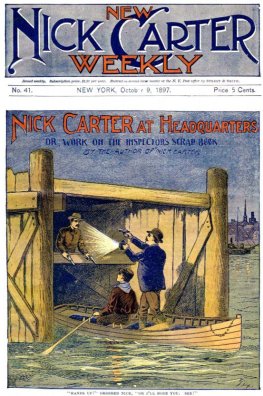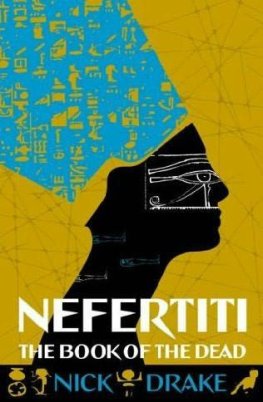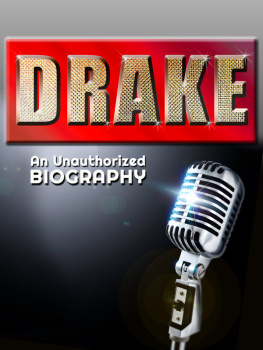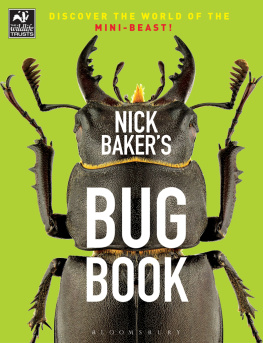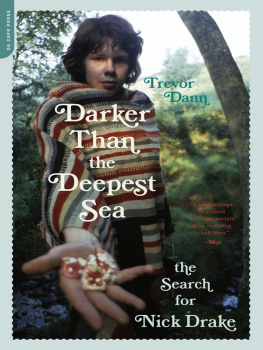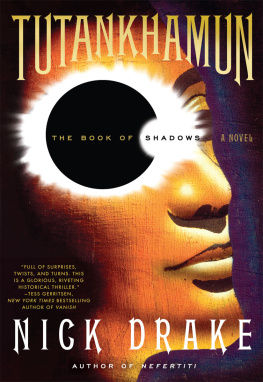TO SUE, FOR IT ALL

Contents
The idea of writing a book about Nick Drake is one which I resisted for many years, not least because I worried that it might be an unbearably depressing task. Eventually, though, all roads really did lead to Nick Drake, and having pondered the family connection my uncle was the doctor who brought baby Nick into the world I began to see a certain symmetry. Perhaps I could discover something about Nicks life and not just dwell on the last few years leading up to his death.
While I was researching my biography of Richard Thompson, Nicks name was mentioned regularly, and I began to think that perhaps the moment had come. When I mentioned the idea to Joe Boyd, while interviewing him about Richard, Nick and Richards producer cast his eyes heavenwards, patiently explaining that I was not the first to come to him with this idea and that he was weary of cooperating on projects which never came to fruition. His response was simply: well talk when youve got a publishing deal. But publishers are like policemen theres never one there when you need one so it took time. One British publisher rejected the detailed proposal and chapter breakdown, explaining that they didnt consider there was sufficient market for a book on Nick Cave.
By the time I had found a publisher with sufficient faith and vision a genuine debt of gratitude here to Penny Phillips of Bloomsbury both Joe and Nicks sister, Gabrielle Drake, had decided not to cooperate, which meant I was unable to quote from Nicks lyrics. This did, of course, make my task a less straightforward one, but by that time I had gone too far to turn back.
Slightly daunted, I went through the journalistic motions with little hope of much success. In the event, I was quite overwhelmed by the response: there seemed to be dozens of people who had known and remembered Nick Drake, simply waiting for someone to ask them about him. New undreamed of angles started to emerge, and a strange, unfamiliar picture of a very different Nick Drake began to develop. Far from being depressing, the project became exciting, even uplifting. The fondness of his schoolfriends for the young Nick was particularly contagious, and I began to feel I had a mission to give this young man his life back.
Nicks parents are now dead, but I very much wanted to use their words, not just for the background to his early family life, but because, more than anyone else, they were in a position to shed light on the last few years, when his illness had taken hold. I am therefore indebted to T.J. McGrath for allowing me to use tapes of interviews he conducted with Rodney and Molly Drake in 1985; these gave me the backbone of Nicks story.
Joe and Gabrielle have both been interviewed many times and, where necessary, I have drawn on, and acknowledged, these previously published sources; otherwise their quotes come from interviews I conducted with them in 1994 for a magazine piece which never appeared. All other quotes, unless otherwise noted in the text, are taken from the dozens of interviews which I conducted exclusively for this book.
In the past, myth and rumour have attached themselves like barnacles to Nick Drake. Rock n roll is notoriously unreliable: session logs have disappeared, corporate take-overs have seen archives vanish, correspondence has been ditched, original press releases shredded. Misquotes and misinformation proliferate. For too long Nick has been the victim of myth-making. In the end, out of twenty-six years, twenty-three were spent by and large happily, either with his family, at school and university, or beginning his recording career. It was only towards the end that, in his mother Mollys sadly chilling phrase, the shadows closed in.
It would have been nice to have some of the story in Nicks words. As it is, he lives on not only in his music, but in the fond memories of the many whose lives were touched by his, and through them, I hope in this book. This is a life of Nick Drake, in the words of those who knew him. And if that is not enough, there is always, and always will be, the music.
Patrick Humphries
London, September 1997
All morning the crowds seeped from the city centre, a constant stream trickling down to the Lough. The sun was high in the clear blue sky which hung over Belfast that bright spring day. It was a time before television, when cinema was a sideshow novelty and only radio whispered in soft waves across the air. The borders of Europe had remained unchanged, secure in their dynastic stability for centuries; the twentieth century had yet to make its mark on the map.
The year was 1911. King George V was still a month away from his Coronation and Queen Victoria had been dead for a decade. With her passing, Imperial Glory and absolute monarchy had also gone to the grave. Edward VII had succeeded his mother, and in marked contrast to the widows weeds and mournful demeanour which had dominated the past four decades of Victorias reign, his ten years on the throne were characterized by vivacity and bright colours.
Edwards funeral, in 1910, was to be the final occasion when all the crowned heads gathered. Men who held unquestioned power over the lives of untold millions in Russia, Austria-Hungary, Germany and France stood together, heads bowed, as the corpulent King was wheeled past. There had not been a land war in Europe since Great Britain had battled Russia in the Crimea over half a century earlier.
The first years of the twentieth century had ushered in a new era: an exciting time of flying machines and moving pictures and confidence that man for it was still a masculine world could harness and control the forces of nature.
In 1911 seven out of every ten tons of shipping which sailed through the Suez Canal were British. Gandhi was still practising law in South Africa; Stalin languished in a Tsarist prison; and Hitler was eking out a living as an artist in Vienna. For the majority of subjects of the British Empire, place-names such as the Somme, Auschwitz and Hiroshima were as yet unknown. It was the calm before the storm.
In Belfast home of the massive shipyards which build the ships which sail the seas which bind the Empire together the White Star Line has commissioned shipbuilders Harland & Wolff to construct the largest ship in maritime history. But the vessel the crowds flock to see launched will never sail through the Suez Canal, will never leave the Atlantic. RMS Titanic will never know safe harbour.
The ship which began life as an enormous metal skeleton, its massive bare bones welded together like something unimaginable and Jurassic, looms like a cathedral of steel over the city which witnessed its birth pangs. It will be a symbol of the pre-eminence of Empire, the pre-eminence of man. Following Blriots conquest of the air only two years before, this floating palace will banish any vestiges of uncertainty. The White Star Line boasts that the Titanic demonstrates the pre-eminence of the Anglo-Saxon race in command of the seas and pays eloquent testimony to the progress of mankind and the conquest of mind over matter.
It will take just sixty-two seconds, on the morning of 31 May 1911, for the 46,328-ton, 852-foot-long steamship to crash down the slipway and out into Belfast Lough. But before she is ready to undertake her maiden voyage there must follow nearly a year of fitting out and lengthy sea trials. At last, as she sails out of Southampton on 10 April 1912, she is deemed unsinkable. With a crew of 885 and 1316 passengers on board, she sets out across the Atlantic. Riding with her are all the hopes of the world.
Cleaving through the chill Atlantic waters,
Next page

